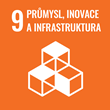
Informace o projektu
I-tools to Design and Enhance Access to justice
(IDEA)
- Kód projektu
- 101160528
- Období řešení
- 9/2024 - 8/2026
- Investor / Programový rámec / typ projektu
-
Evropská unie
- Ostatní komunitární programy
- Fakulta / Pracoviště MU
- Právnická fakulta
- Spolupracující organizace
-
Tallinn University of Technology
Universita Napoli Federico II
Vrije Universiteit Brussel
- Odpovědná osoba Marco Giacalone, PhD
- Odpovědná osoba Giacalone Paola
Consiglio Nazionale Delle Ricerche
Universita degli Studi della Tuscia
Sveučilište u Zagrebu Pravni fakultet
Fédération des Barreaux d?Europe
In the age of artificial intelligence (AI), big data and predictive analytics, one wonders to what extent the sheer amount of information gathered will be used for good, preserving the rule of law and human rights. The IDEA Project focuses on digitalisation and predictive justice, which can be applied in labour law disputes, both in European and national contexts. We aim to develop a digitalised procedure and a platform to address harmonisation across digitalisation and predictive algorithms in access to justice, encompassing interaction with the forthcoming EU legislations on the Digitalisation of judicial cooperation and access to justice and the AI Act and to verify it together with six judicial authorities and numerous practitioners. This method has an innovative character – combining legal analysis with broad text mining techniques – as it will unravel the concept of predictivity to assess the (in)compatibility with the rule of law in civil law systems. Embracing a combination of theoretical and practical driven approaches, the IDEA Consortium will closely collaborate to:
- analyse three court systems that are more digitalised and study/identify the best practices.
- design a pilot project of a digitalised court in 3 of the 6 EU Member States of the Consortium
- develop a chatbot that will suggest to the parties the best choice between an automated negotiation, an online mediation, or an ordinary settlement in an online court.
If the quantity of data (court decisions) is sufficient, then data analytics allows for identifying court trends and rationales. This may increase equality because the prediction can reduce information asymmetry between parties and nudge them towards settlement
instead of a lengthy court proceeding. Through the second main research question, we will investigate how predictive algorithms will improve access to justice, simplify access to legal records, automate case law research activities, and reduce justice costs.
Cíle udržitelného rozvoje
Masarykova univerzita se hlásí k cílům udržitelného rozvoje OSN, jejichž záměrem je do roku 2030 zlepšit podmínky a kvalitu života na naší planetě.
Publikace
Počet publikací: 3
2025
-
Automating employment disputes: A case selection framework
Jusletter IT, rok: 2025, ročník: 2025, vydání: 1, DOI
-
Automating employment disputes: Selecting cases for pilot programs
Rok: 2025, druh: Další prezentace na konferencích
2024
-
Představení výzkumného projektu IDEA: elektronické nástroje pro zlepšování přístupu ke spravedlnosti ve specifických situacích
Rok: 2024, druh: Další prezentace na konferencích







